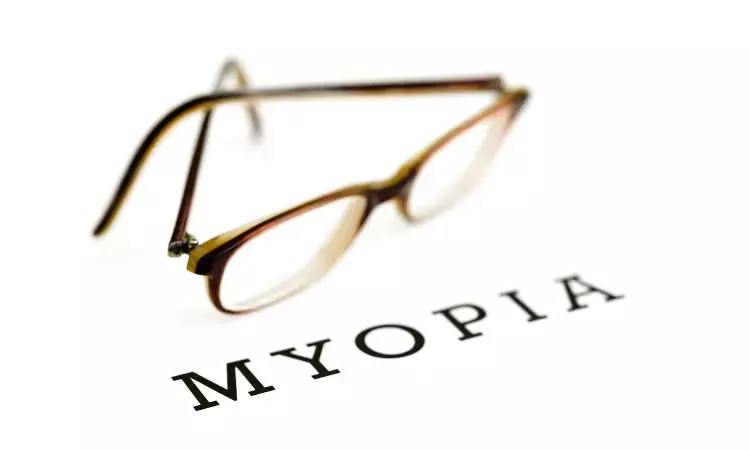- Home
- Medical news & Guidelines
- Anesthesiology
- Cardiology and CTVS
- Critical Care
- Dentistry
- Dermatology
- Diabetes and Endocrinology
- ENT
- Gastroenterology
- Medicine
- Nephrology
- Neurology
- Obstretics-Gynaecology
- Oncology
- Ophthalmology
- Orthopaedics
- Pediatrics-Neonatology
- Psychiatry
- Pulmonology
- Radiology
- Surgery
- Urology
- Laboratory Medicine
- Diet
- Nursing
- Paramedical
- Physiotherapy
- Health news
- Fact Check
- Bone Health Fact Check
- Brain Health Fact Check
- Cancer Related Fact Check
- Child Care Fact Check
- Dental and oral health fact check
- Diabetes and metabolic health fact check
- Diet and Nutrition Fact Check
- Eye and ENT Care Fact Check
- Fitness fact check
- Gut health fact check
- Heart health fact check
- Kidney health fact check
- Medical education fact check
- Men's health fact check
- Respiratory fact check
- Skin and hair care fact check
- Vaccine and Immunization fact check
- Women's health fact check
- AYUSH
- State News
- Andaman and Nicobar Islands
- Andhra Pradesh
- Arunachal Pradesh
- Assam
- Bihar
- Chandigarh
- Chattisgarh
- Dadra and Nagar Haveli
- Daman and Diu
- Delhi
- Goa
- Gujarat
- Haryana
- Himachal Pradesh
- Jammu & Kashmir
- Jharkhand
- Karnataka
- Kerala
- Ladakh
- Lakshadweep
- Madhya Pradesh
- Maharashtra
- Manipur
- Meghalaya
- Mizoram
- Nagaland
- Odisha
- Puducherry
- Punjab
- Rajasthan
- Sikkim
- Tamil Nadu
- Telangana
- Tripura
- Uttar Pradesh
- Uttrakhand
- West Bengal
- Medical Education
- Industry
Low dose atropine effective in treating myopia in Indians

Several studies point that myopia is a growing concern around the world, with a recent study estimating that on average, 30% of the world is currently myopic and by 2050, almost 50% will be myopic, that's a staggering 5 billion people.
Topical atropine has proven to be the most effective and promising treatment modality in myopia control for over several decades. Previous reviews and meta-analyses reported that among various treatment options available, topical atropine shows a maximum reduction in myopia progression.
Study published in Scientific Reports aimed to evaluate the efficacy and safety of low-dose atropine compared to placebo in the Indian population and also to study the impact of various modifiable and non-modifiable factors on myopia progression (MP) and drug efficacy (DE).
Study was a single-centre prospective placebo-controlled interventional study, 43 participants aged 6–16 years with progressive myopia received 0.01% atropine in the right eyes (treatment) and placebo in the left eyes (control) for 1-year. The main outcome measures were annual MP and axial length elongation (ALE) in treatment and control eyes and their percentage difference between two eyes (drug efficacy). Secondary outcome measures were the occurrence of any adverse events and the correlation of MP, ALE, and DE with various factors. 40 participants (80 eyes) completed the follow-up.
The results of the study were evaluated after a year, MP was 0.25 D and 0.69 D in treatment and control respectively showing 63.89% reduction with respective ALE of 0.14 mm and 0.32 mm i.e 44.44% reduction. Reduction in MP and ALE was statistically significant in all children irrespective of age-group, baseline MP, family history, screen-time, near and outdoor-time. Screen-time in control eyes was associated with greater ALE (r = 0.620, p = 0.042). DE was higher when outdoor time exceeded 2 h/day (p = 0.035) while the efficacy was lower with prolonged near activities (p = 0.03), baseline fast-progressors (p < 0.05) and history of parental myopia (p < 0.05).
The researchers concluded that "0.01% atropine is effective and safe in retarding MP and ALE in Indian eyes, Compared to placebo, low-strength of the drug showed good efficacy irrespective of age, screen-time, time spent indoor and outdoor, and family history but young age and fast progressors may still need close follow-up."
Reference: https://doi.org/10.1038/s41598-022-10079-1
Medical Dialogues consists of a team of passionate medical/scientific writers, led by doctors and healthcare researchers. Our team efforts to bring you updated and timely news about the important happenings of the medical and healthcare sector. Our editorial team can be reached at editorial@medicaldialogues.in.
Dr Kamal Kant Kohli-MBBS, DTCD- a chest specialist with more than 30 years of practice and a flair for writing clinical articles, Dr Kamal Kant Kohli joined Medical Dialogues as a Chief Editor of Medical News. Besides writing articles, as an editor, he proofreads and verifies all the medical content published on Medical Dialogues including those coming from journals, studies,medical conferences,guidelines etc. Email: drkohli@medicaldialogues.in. Contact no. 011-43720751


